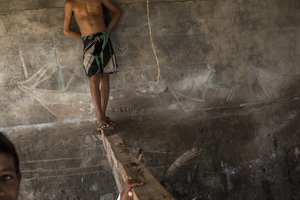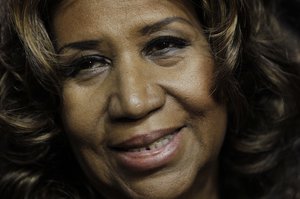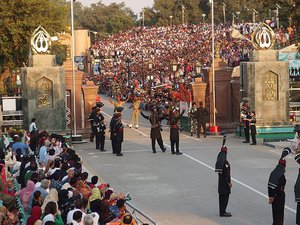
Music of Bulgaria
The music of Bulgaria refers to all forms of music associated with the country of Bulgaria, including classical, folk, popular music, and other forms.
Classical music, opera, and ballet are represented by composers Emanuil Manolov, Pancho Vladigerov and Georgi Atanasov and singers Ghena Dimitrova, Mariana Paunova, Boris Hristov, Raina Kabaivanska and Nicolai Ghiaurov. Notable names from the contemporary pop scene are Lili Ivanova, Emil Dimitrov, Vasil Naydenov. The State Television Female Vocal Choir is the most famous performing folk ensemble in the country, and has received a Grammy Award in 1990. Famous Bulgarian artists abroad are Sylvie Vartan, Philipp Kirkorov, Lucy Diakovska, Mira Aroyo, Mikhael Paskalev, Nora Nova, Vasko Vassilev and Ivo Papazov.
Instruments
Bulgarian music uses a wide range of instruments. Some folk instruments are variants of traditional Asian instruments such as the "Saz" (Bulgarian tambura), or the kemençe (Bulgarian gadulka). More modern style instruments are often used in the modern dance music that was an offshoot of traditional village music.
Bulgarian
Bulgarian refers to anything of or relating to Bulgaria and may refer directly to:
or
See also

Bulgarians
The Bulgarians (Bulgarian: българи, bǎlgari, IPA: [bɤ̞ɫɡɐri]) are a nation and South Slavicethnic group, who are native to Bulgaria and neighbouring regions. Bulgarians have lived between the Upper Danube, the Aegean, Adriatic, and Black Seas in southeastern Europe.
According to the DNA tests of a number of Bulgarians, they are least distanced from(or most related to) neighbouring Romanians, Macedonians and Serbs, while the Bulgarians, along with other peoples labelled as South Slavs are overall distant from their fellow North Slavic linguistic relatives, whereas more related to some local European nations speaking unrelated languages. Overall, Eastern and Western European nations usually mainly share the same Indo-European kinship, but at a higher frequency more recent kinship(haplogroups) with the nations of their region, making Bulgarians most distanced from far-Western European nations. The diversity is mainly affected by the paternal lineage because the maternal lineage in comparison has undiverse distribution throughout Europe.

Bulgarian language
Bulgarian ![]() i/bʌlˈɡɛəriən/, /bʊlˈ-/ (български език, pronounced [ˈbɤɫɡɐrski ɛˈzik]) is an Indo-European language, a member of the Southern branch of the Slavic language family.
i/bʌlˈɡɛəriən/, /bʊlˈ-/ (български език, pronounced [ˈbɤɫɡɐrski ɛˈzik]) is an Indo-European language, a member of the Southern branch of the Slavic language family.
Bulgarian, along with the closely related Macedonian language (collectively forming the East South Slavic languages), has several characteristics that set it apart from all other Slavic languages: changes include the elimination of case declension, the development of a suffixed definite article (see Balkan language area), and the lack of a verb infinitive, but it retains and has further developed the Proto-Slavic verb system. Various evidential verb forms exist to express unwitnessed, retold, and doubtful action.
With the accession of Bulgaria to the European Union on 1 January 2007, Bulgarian became one of the official languages of the European Union.
History
The development of the Bulgarian language may be divided into several periods.

Music of Bulgaria
The music of Bulgaria refers to all forms of music associated with the country of Bulgaria, including classical, folk, popular music, and other forms.
Classical music, opera, and ballet are represented by composers Emanuil Manolov, Pancho Vladigerov and Georgi Atanasov and singers Ghena Dimitrova, Mariana Paunova, Boris Hristov, Raina Kabaivanska and Nicolai Ghiaurov. Notable names from the contemporary pop scene are Lili Ivanova, Emil Dimitrov, Vasil Naydenov. The State Television Female Vocal Choir is the most famous performing folk ensemble in the country, and has received a Grammy Award in 1990. Famous Bulgarian artists abroad are Sylvie Vartan, Philipp Kirkorov, Lucy Diakovska, Mira Aroyo, Mikhael Paskalev, Nora Nova, Vasko Vassilev and Ivo Papazov.
Instruments
Bulgarian music uses a wide range of instruments. Some folk instruments are variants of traditional Asian instruments such as the "Saz" (Bulgarian tambura), or the kemençe (Bulgarian gadulka). More modern style instruments are often used in the modern dance music that was an offshoot of traditional village music.
Latest News for: bulgarian folk
The Mystery Of The Bulgarian Voices: BooCheeMish
An ’80s rock star, a beat boxer and a Bulgarian folk choir walk into a studio
Bulgaria’s Cold War bunkers reborn as creative retail spaces

Nasa's Golden Record may baffle alien life, say researchers
City Centre Rotana Doha Hosts the 'Bulgarian Folk Motifs'...
Global Melodies: Balkan ensemble draws inspiration from diverse musical styles, mediums
Tickets on sale Friday for Neko Case's upcoming Oklahoma concert
Bulgarian women's choir among Festival of Voices performers this weekend
Cultural Crossroads festival set for March 9-11 in Bellevue
Neko Case Announces First Solo Solo Album In 5 Years, 'Hell-On'
10 Things You Didn't Know George Harrison Did
Music reviews: Sarah Blasko, Vance Joy, the Marais Project and more
Elektra Kurtis Faces New Challenge as Friends, Family, Fans Thank and Help Her
- 1
- 2
- 3
- 4
- 5
- Next page »
News Search
Most Viewed
The Post-Standard | 13 Aug 2018
WorldNews.com | 13 Aug 2018
WorldNews.com | 13 Aug 2018
EurasiaNet | 13 Aug 2018
Kurdistan Media | 13 Aug 2018
Huffington Post | 13 Aug 2018
Yahoo Daily News | 13 Aug 2018
WorldNews.com | 13 Aug 2018





































